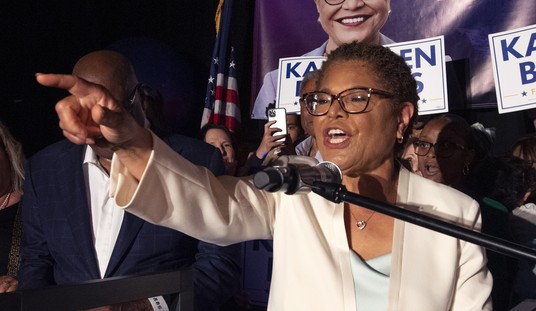If you're looking for financial planning advice, looking to anyone in government is generally not advisable. In light of what's happened with California's budget over the last 30 days, you should absolutely avoid the people who forecast revenue for the State of California. They're the Jim Cramer of revenue forecasting, it seems, having missed income tax revenue projections by $26 billion.
Now that all of the revenue numbers are in, the state Legislative Analyst's Office reported on December 7 that the state faces a $68 billion budget shortfall next year assuming spending levels "under the state's current law and policy." In a blog post the week before that, which now seems like an expectation-setting ploy, they'd hinted at a $58 billion budget shortfall; in the 2022-23 budget year legislators and Gov. Gavin Newsom struggled to fill a $31.5 billion budget gap.
Without a massive change in fiscal policy, analysts project that the state's deficits will average $30 billion a year for the next three years, for a total of $155 billion between 2024-28 - more than six times the amount the state has available in reserves.
That's assuming that Bidenomics doesn't wreak further havoc on the national economy and that the state's strangling regulatory and tax structure doesn't drive more high-income individuals and businesses out of the state during that time.
That lack of funding will put a major dent in Newsom's plans to make California a leftist paradise - and better, for the rest of the nation, this massive failure may derail his presidential ambitions.
While that's good news for Californians since there's no way silly things like reparations can even be considered in such a challenging environment, the current news gets worse for Newsom and legislators who are used to spending taxpayer dollars without restraint instead of actually governing.
And, the report doesn't address the insolvency of the state's Employment Development Department, which is $20 billion in debt and is expected to have fewer contributions coming in than payments going out over the next year.
The situation is so dire that Newsom's been forced to have the Department of Finance issue a Budget Letter directing all state agencies to freeze current-year spending, effective immediately.
It is vitally important that state government is efficient, effective, and only expends funds that are necessary to the critical operation and security of the state. As such, all state entities must take immediate action to reduce expenditures and identify all operational savings achieved.
The last time such a letter was issued was in 2020, when coronavirus shutdowns ravaged the state economy. This situation, though, is unprecedented, according to the Legislative Analyst's report, and it doesn't look like a one-off:
Whether the recent weakness will continue is difficult to say. However, the odds do not appear to be in the state's favor.
The Budget Letter specifies that state government spending in the following categories should be immediately halted:
- New Goods and Services Contracts
- Discretionary and non-essential IT Equipment, including all planned IT equipment refreshes, copier or printer replacements, or cell phone refreshes.
- Fleet Vehicles
- Office Supplies beyond those minimal for performing job duties
- Non-essential travel (participation in seminars, conferences, and training) both in-state and out-of-state
- Leave Buy-Back
The letter also directs all departments to review all IT maintenance and operations contracts and "validate services, subscriptions, equipment, and /or software licenses are still in use and necessary" and review pending procurement/solicitations and IT projects in the Project Approval Lifecycle process to see what can be delayed.
Back to the Legislative Analyst's Fiscal Outlook report, in which the introduction completely contradicts Newsom's talking points about California's economy and contains a few sobering statistics (emphasis mine):
In an effort to cool an overheated U.S. economy, the Federal Reserve has taken actions over the last two years to make borrowing more expensive and reduce the amount of money available for investment. This has slowed economic activity in a number of ways. For example, home sales are down by about half, largely because the monthly mortgage to purchase a typical California home has gone from $3,500 to $5,400. Some effects of the Federal Reserve’s actions have hit segments of the economy that have an outsized importance to California. In particular, investment in California startups and technology companies is especially sensitive to financial conditions and, as a result, has dropped significantly. For example, the number of California companies that went public (sold stock to public investors for the first time) in 2022 and 2023 is down over 80 percent from 2021. As a result, California businesses have had much less funding available to expand operations or hire new workers.
These mounting economic headwinds have pushed the state’s economy into a downturn. The number of unemployed workers in California has risen nearly 200,000 since the summer of 2022. This has resulted in a jump in the state’s unemployment rate from 3.8 percent to 4.8 percent. Similarly, inflation-adjusted incomes posted five straight quarters of year-over-year declines from the first quarter of 2022 to the first quarter 2023.
State Senate Pro Tem Toni Atkins (D-San Diego) issued a word salad statement showing she truly did not understand what the report said:
"While this latest update to the revenue forecast is not welcome news, California is more prepared than ever to withstand budget challenges and our economy overall is stronger than projected. We will have a clearer picture of our situation as we approach the budget deadline next June. But with our record reserves and other budgeting tools, we, along with our partners in the Assembly and the Administration, will work through these challenges while protecting middle class taxpayers and our progress on core programs that help all Californians."
But Republican State Sen. Roger Niello, vice chairman of the Senate Budget Committee, correctly placed blame for the state's budget woes on the reckless growth in spending dictated by the Democrat supermajority:
Despite all warnings that it was unsustainable, California’s tax-and-spend majority increased state spending by $116 billion over the last six years, nearly doubling the general fund budget in that short time.
Six years... essentially the exact amount of time Gavin Newsom's been running the state. He didn't even do San Francisco this dirty.














Join the conversation as a VIP Member